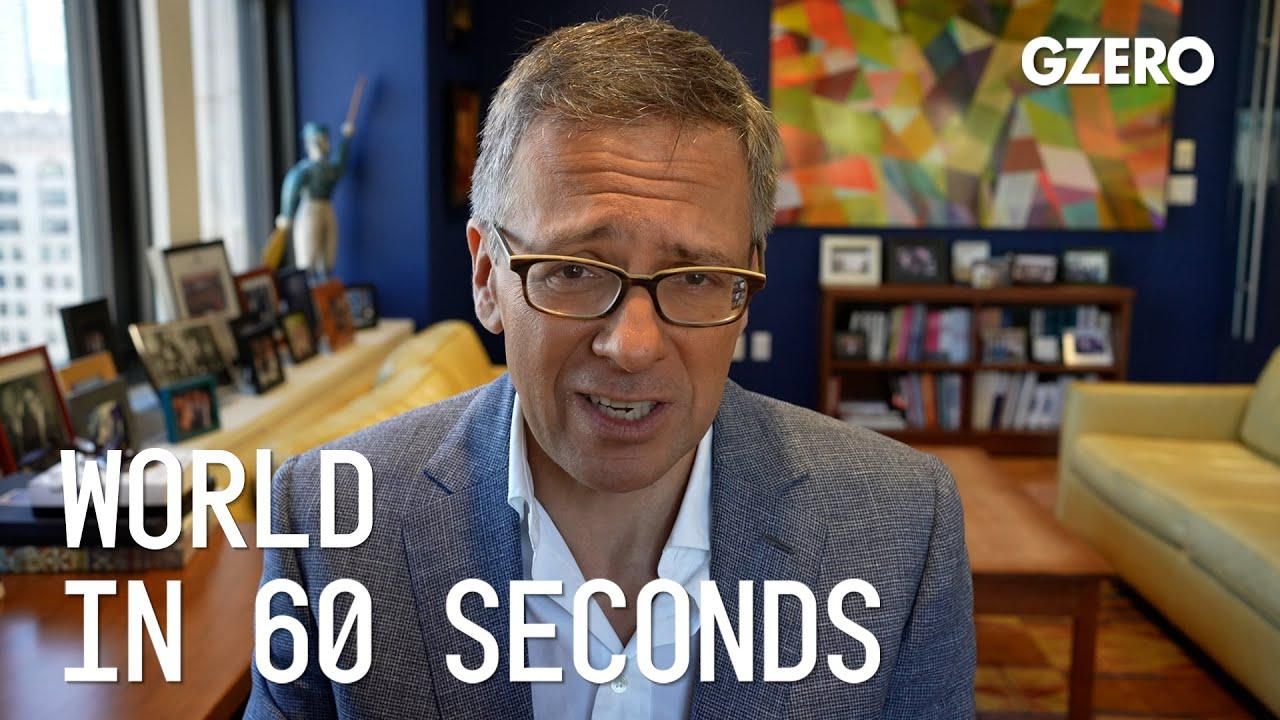Will the Buffalo shooting finally lead to gun reform in the United States? Is North Korea on the brink of a COVID-19 catastrophe? What is "The Power of Crisis"? Ian Bremmer shares his insights on global politics this week on World In :60.
Will the Buffalo shooting finally lead to gun reform in the United States?
Absolutely not. Yeah, white supremacist uses a Bushmaster and puts out a manifesto that talks about how excited he is about all these guns, crazy lunatic, and going to be in jail for the rest of his life. For me, the one that got closest to maybe you get gun reform was the Newtown shooting in Connecticut. That was one that, really hit close to middle America, American elites and moved the needle in Washington for a bit, but still within a few months was pretty clear it wasn't going to happen. I think that the Americans, it's not that they've given up on gun reform, but that it just feels like something that Americans are prepared to tolerate. And also it's just not considered a top priority issue in terms of a threat to the average American that hits their top two, top three, top five. And so, as a consequence to me, it feels a little bit like the crack cocaine issue back in the eighties and the nineties. Horrible human tragedy, largely performative response, thoughts and prayers, but doesn't really force anyone to get out of their comfort zone and it's still politicized. Horrible thing.
Is North Korea on the brink of a COVID-19 catastrophe?
It certainly looks that way. They're one of only two countries in the world that have refused vaccines. The other is Eritrea. It's a totalitarian regime. They were offered vaccines by the Chinese. They said, "No, we want good vaccines. We want Moderna. We want Pfizer." They're not getting Moderna and Pfizer. Though, maybe we should send them, frankly. It now looks like you have enormous spread of cases in a population that has no healthcare capability to respond effectively and probably no antibodies because they're been locked down in terms of their borders for a long time. And now, unfortunately, massive transmission. This could be an enormous crisis from North Korea. And it makes me concerned that they're going to lash out to get more attention and maybe to get more aid if it's really bad. So if you were concerned about potential tests of nuclear weapons and so forth, or big ICBM launches, the next few weeks would be where I would worry about that.
You have a new book, what is "The Power of Crisis"?
Oh, come on. Really, really? You asking me that, or did my guys line that up? I have a new book. “The Power of Crisis” is this idea that in an environment where our institutions both domestically and internationally are eroding, drip by drip over the course of the past several decades, that a target rich crisis environment is potentially exactly what we need to really respond in ways that otherwise we would not. And we're certainly seeing that with the climate crisis in ways that we didn't 10, 20 years ago. We're also seeing it with the Russia-Ukraine crisis in ways that Putin did not think were possible, or he never would've invaded Ukraine back on February 24th. Not all crises are like that. Some are too small for us to really bother, like for example, the way we perceive the Buffalo shooting. And frankly, the way we've handled, COVID, both the United States and China. And hopefully none are too big, because if they are then we're really screwed.
- Hard Numbers: Spain spy chief sacked, US gun deaths soar ... ›
- Ian Bremmer: power of the "Goldilocks crisis" - GZERO Media ›
- Hard Numbers: North Korea confirms COVID, US pandemic death ... ›
- After the Buffalo shooting: gun violence and US polarization ... ›
- The politics of US crime: Perception vs reality - GZERO Media ›
- Boris Johnson is likely to face another no-confidence vote soon - GZERO Media ›
- US Senate passes bipartisan gun bill but SCOTUS may loosen gun laws - GZERO Media ›
- Boris Johnson is going to be out, one way or the other - GZERO Media ›
More For You
In this Quick Take, Ian Bremmer addresses the killing of Alex Pretti at a protest in Minneapolis, calling it “a tipping point” in America’s increasingly volatile politics.
Most Popular
Who decides the boundaries for artificial intelligence, and how do governments ensure public trust? Speaking at the 2026 World Economic Forum in Davos, Arancha González Laya, Dean of the Paris School of International Affairs and former Foreign Minister of Spain, emphasized the importance of clear regulations to maintain trust in technology.
Will AI change the balance of power in the world? At the 2026 World Economic Forum in Davos, Ian Bremmer addresses how artificial intelligence could redefine global politics, human behavior, and societal stability.
Ian Bremmer sits down with Finland’s President Alexander Stubb and the IMF’s Kristalina Georgieva on the sidelines of the World Economic Forum to discuss President Trump’s Greenland threats, the state of the global economy, and the future of the transatlantic relationship.
